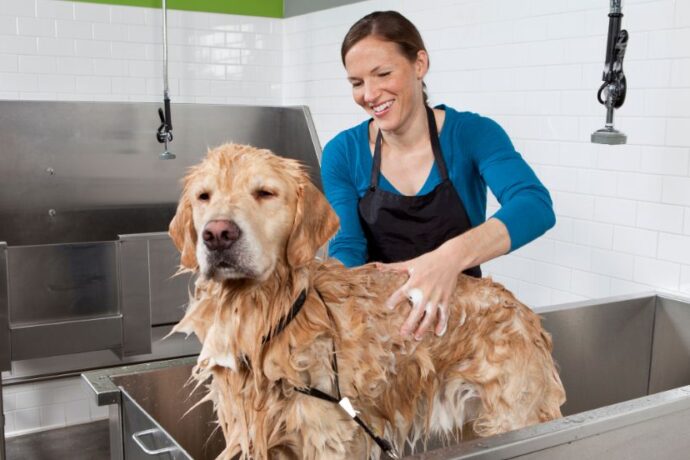Dogs aren’t just pets — they’re loyal companions, emotional healers, and sources of unconditional love. Whether they greet you with excitement after a long day or snuggle up when you’re feeling down, their presence can have a profound impact on emotional health.
From reducing stress and anxiety to providing a sense of purpose and belonging, dogs play a bigger role in our mental well-being than many realize.
Science backs this up — studies show that spending time with dogs triggers feel-good hormones, improves mood, and even helps people cope with loneliness and depression (1)(2).
Let’s dive into the emotional benefits of owning a dog and understand why these furry friends are often called “man’s best friend.”
How Dogs Positively Impact Mental and Emotional Health

Owning a dog goes beyond companionship — it can transform your emotional well-being. Multiple studies have demonstrated that interacting with dogs improves mental health in several ways:
1. Reduces Stress and Anxiety
According to a study published in the Journal of Psychiatric Research, petting a dog lowers cortisol levels, the hormone responsible for stress. Simply stroking their fur can calm your nervous system and promote relaxation (3).
Example: Therapy dogs are increasingly used in hospitals, universities, and counselling centers to reduce anxiety and stress levels in patients and students.
2. Boosts Mood and Happiness
Dogs trigger the release of oxytocin, often called the “love hormone”, which enhances emotional bonding and creates feelings of happiness. At the same time, interacting with them lowers blood pressure and reduces heart rate, making you feel more relaxed and content.
3. Fights Loneliness and Depression
Dogs provide constant companionship, making them especially beneficial for people living alone or those struggling with depression.
A study from the Human-Animal Bond Research Institute (HABRI) found that 74% of pet owners reported improved mental health after adopting a pet (4). Dogs encourage social interaction too — whether through walks, park visits, or community events — reducing feelings of isolation.
4. Encourages Routine and Purpose
Dogs thrive on routine, and owning one often creates structure in daily life. From feeding to walking and grooming, caring for a dog instills responsibility and gives owners a sense of purpose, which is particularly helpful for those coping with anxiety or depression.
5. Enhances Social Connections
Dogs act as natural social magnets. Whether you’re at a dog park or simply walking down the street, your furry friend can make it easier to connect with strangers, start conversations, and build friendships.
6. Provides Emotional Support During Difficult Times
Dogs are naturally intuitive and can sense human emotions. Many owners report that their dogs offer comfort by staying close or snuggling when they’re sad, anxious, or grieving. Their nonjudgmental presence often acts as an anchor during life’s toughest moments.
Scientific Backing: How Dogs Influence Mental Health

Several studies confirm the psychological benefits of dog ownership:
- A study published in Frontiers in Psychology found that interacting with dogs reduces stress, improves mood, and increases emotional resilience (5).
- American Heart Association research shows that pet ownership is linked to lower risks of depression and better emotional well-being (6).
- Therapy dog programs have demonstrated significant success in reducing anxiety levels in students during exams and helping veterans with PTSD.
- These findings highlight the powerful human-canine bond and its ability to positively affect mental health.
Frequently Asked Questions (FAQs)
1. Can owning a dog help reduce anxiety and depression?
A. Yes. Dogs lower stress hormones like cortisol while increasing oxytocin and serotonin, which improve mood and emotional stability. They also provide companionship, helping reduce feelings of loneliness.
2. Are therapy dogs different from regular pets?
A. Yes. While all dogs can provide emotional comfort, therapy dogs receive specialized training to assist people in clinical, educational, and rehabilitation settings, offering structured emotional support.
3. What if I love dogs but can’t own one?
A. You can still enjoy the emotional benefits by volunteering at animal shelters, dog-sitting for friends, or participating in therapy dog programs where you can spend time with trained pets.
Conclusion:
Dogs don’t just fill homes with love — they fill hearts with comfort, companionship, and emotional healing. Their ability to reduce stress, improve mood, and foster social connections makes them natural therapists on four paws.
References:
1. Health Benefits of Human-Animal Interactions
2. The Friend Who Keeps You Young
3. Effect of Pet Dogs on Children’s Perceived Stress and Cortisol Stress Response











